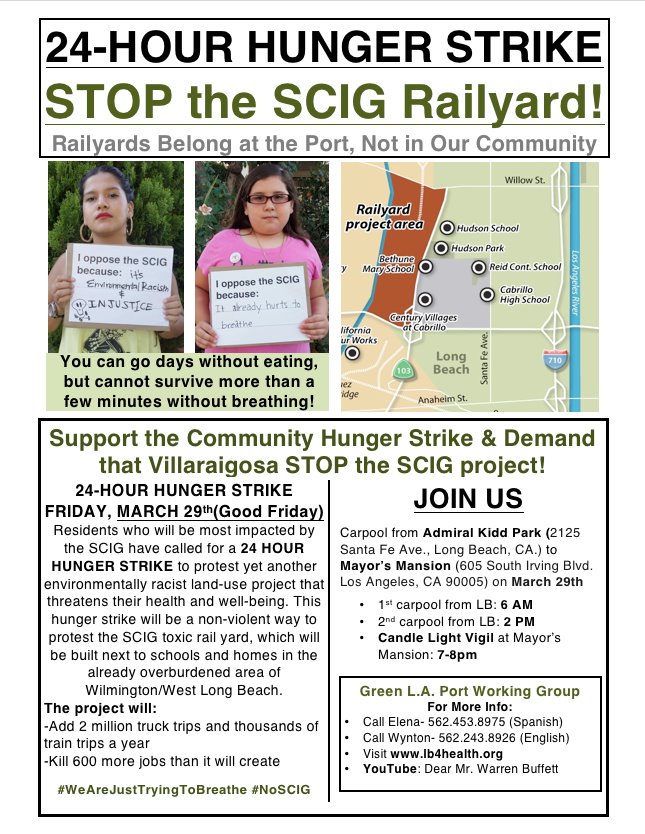Exemplifying a non-violent path to protest the proposed Southern California International Gateway (SCIG) project, The Los Angeles Port Working Group--a collaborative of community health and environment organizations-- decided to go on a 24-hour hunger strike and all-day vigil in front Los Angeles Mayor Antonio Villaraigosa's home.

After the controversial project's FEIR was unanimously approved by the Port of L.A.'s Board of Harbor Commissioners--and subsequently formally appealed by the city of Long Beach and multiple community groups--many within the Long Beach communities near the project felt dejected. For despite thousands of comments raising concerns about air quality, noise pollution, increased traffic, and a decrease in living standards, along with a host of evidence from opposing groups pointing out multiple holes in the EIR, it still sailed through with flying colors.
It now faces the Los Angeles City Council for a final vote--and the hundred -plus people slated to partake in the hunger strike hope it will command Villaraigosa to stop what they call an "environmentally racist land-use project that threatens [our] health and well-being."
"The decision to do this hunger strike was to show the seriousness of this project," said Kat Madrigal of the East Yard Communities for Environmental Justice. "We can go days without eating, but cannot survive more than a few minutes without breathing."
And Villaraigosa is, at least over the individual councilmembers, a particular target for the group since they feel he had a staunchly clear role in moving the project forward via his appointment of the harbor commissioners--who cast their supportive votes under his direction.
"He has orchestrated this project yet has avoided addressing the SCIG in public," continued Madrigal. "With his leadership, we could have worked together and prevented the development of an unjust toxic rail project that will disproportionately impact low-income communities of color."
Beginning at 7:30 am this Friday, the starving protestors will camp in front of Villaraigosa's home 605 South Irving Boulevard and hold a candlelight vigil come 7PM. If asked to leave, organizers stated they will migrate to City Hall.





